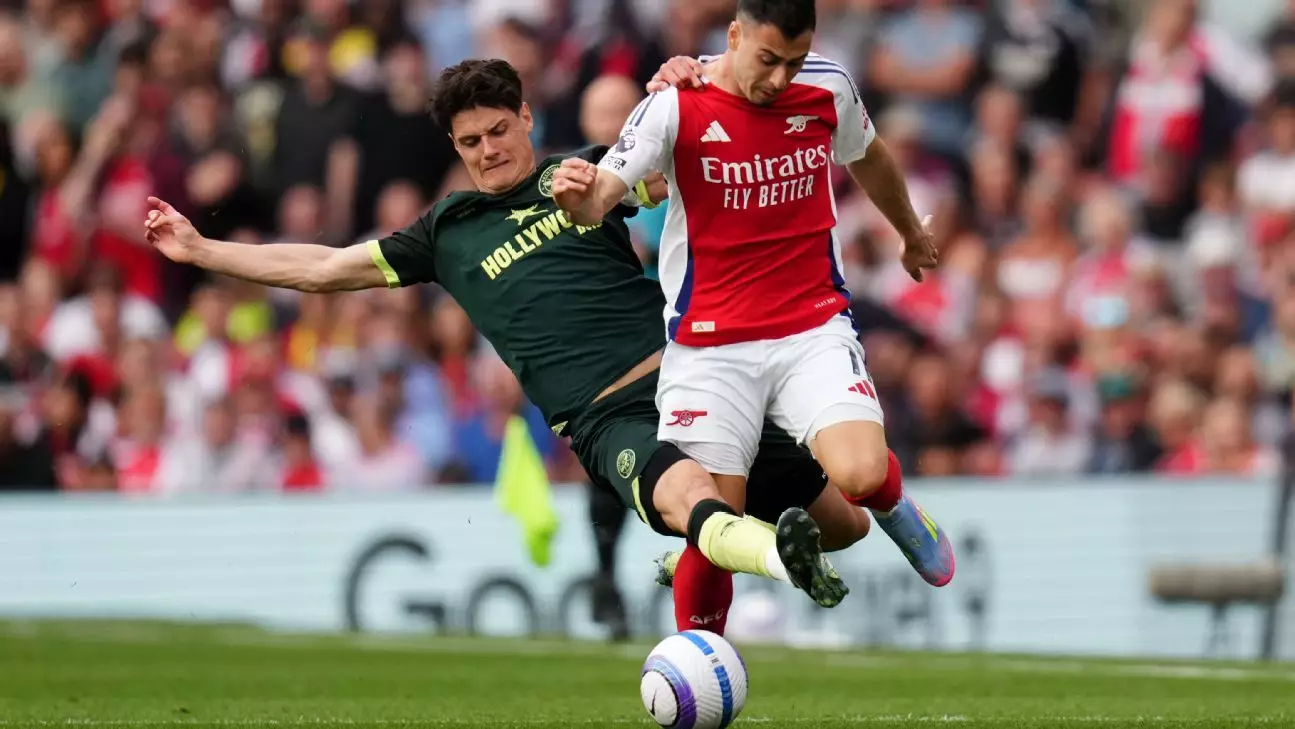In a dramatic Premier League clash, the intense showdown between Arsenal and Brentford ended in a bitter 1-1 draw, but what captured the headlines was not the final scoreline, but a reckless tackle by Christian Nørgaard on Arsenal’s Gabriel Martinelli. Occurring in the 28th minute, the incident sent ripples through the stadium, raising concerns about player safety and the integrity of officiating in high-stakes games. Martinelli himself claimed the tackle was severe enough to possibly have broken his leg, leading to a justifiable uproar regarding whether the referee missed a clear opportunity to impose a stronger penalty. The outrage from players and fans alike reflected a growing frustration over how dangerous tackles are sometimes overlooked in modern football.
A Deeper Look at Player Safety
In sports, the balance between aggressive play and player safety is fragile. Martinelli’s assertion that Nørgaard’s challenge could have been catastrophic speaks volumes about the physical nature of football. The incident also raises questions about the accountability of players and referees alike. Nørgaard’s late tackle, described as “nasty” by Martinelli, sparked discussions on social media and among pundits, highlighting the need for stricter enforcement of rules regarding tackles deemed inherently dangerous. Arsenal manager Mikel Arteta’s visible anger on the sidelines underscored the seriousness of the situation, emphasizing a managerial responsibility for their players outside of merely strategizing game tactics.
The Response from Coaching Staff
Brentford’s manager, Thomas Frank, downplayed the tackle, calling it a “strong yellow,” a sentiment that further ignited tensions. This divergence in opinions from coaching staff illustrates a significant rift in perspectives on player conduct and safety standards within football today. Frank’s statement echoed a common refrain in professional sports, where managers often prioritize winning over players’ well-being. On the contrary, Arteta’s impassioned response presented a stark contrast, emphasizing a need for more robust protection protocols for athletes on the field.
The Impact on Arsenal’s Upcoming Matches
Beyond the tackle, the game had broader implications for Arsenal’s aspirations in the ongoing season. With crucial matches on the horizon, including a decisive Champions League quarterfinal against Real Madrid, any injuries to key players like Thomas Partey or Ben White could derail their ambitions. Arteta’s concern about player fitness following the match indicates the precarious position Arsenal finds itself in during this critical phase. Fans are left anxiously awaiting updates on their star players, amplifying the tension surrounding the already contentious atmosphere created by the recent tackle.
A Call for Increased Accountability
This incident serves as a stark reminder of the unpredictability that marks professional football. While injuries from poor tackles are a risk that players have always faced, the apparent leniency in punishing reckless play can lead to devastating consequences. As the game evolves, so too must the regulations and standards that govern it. Greater accountability is essential, not only from players but also from the officiating bodies and coaching staff that influence the overall culture of the sport. With player safety at stake, the football community must confront these issues head-on, ensuring that the beautiful game remains a sport in which skills and tactics take precedence over brutality.

